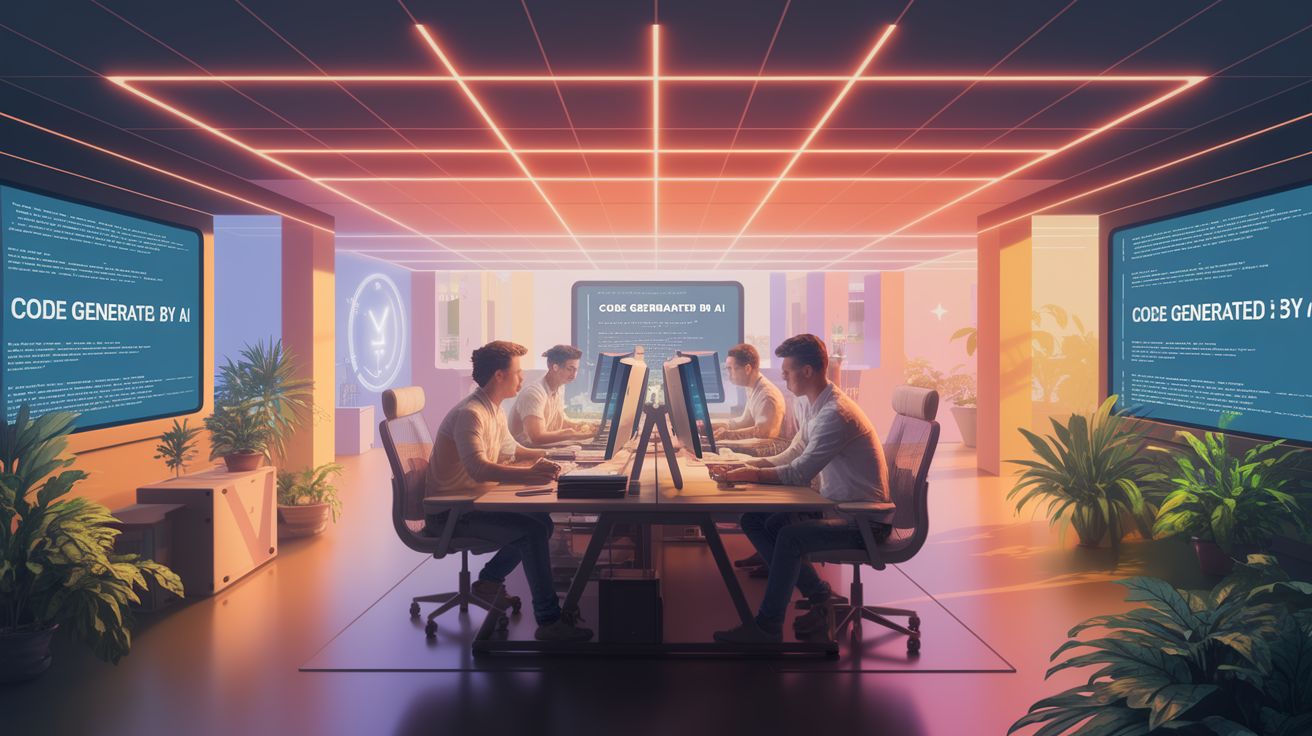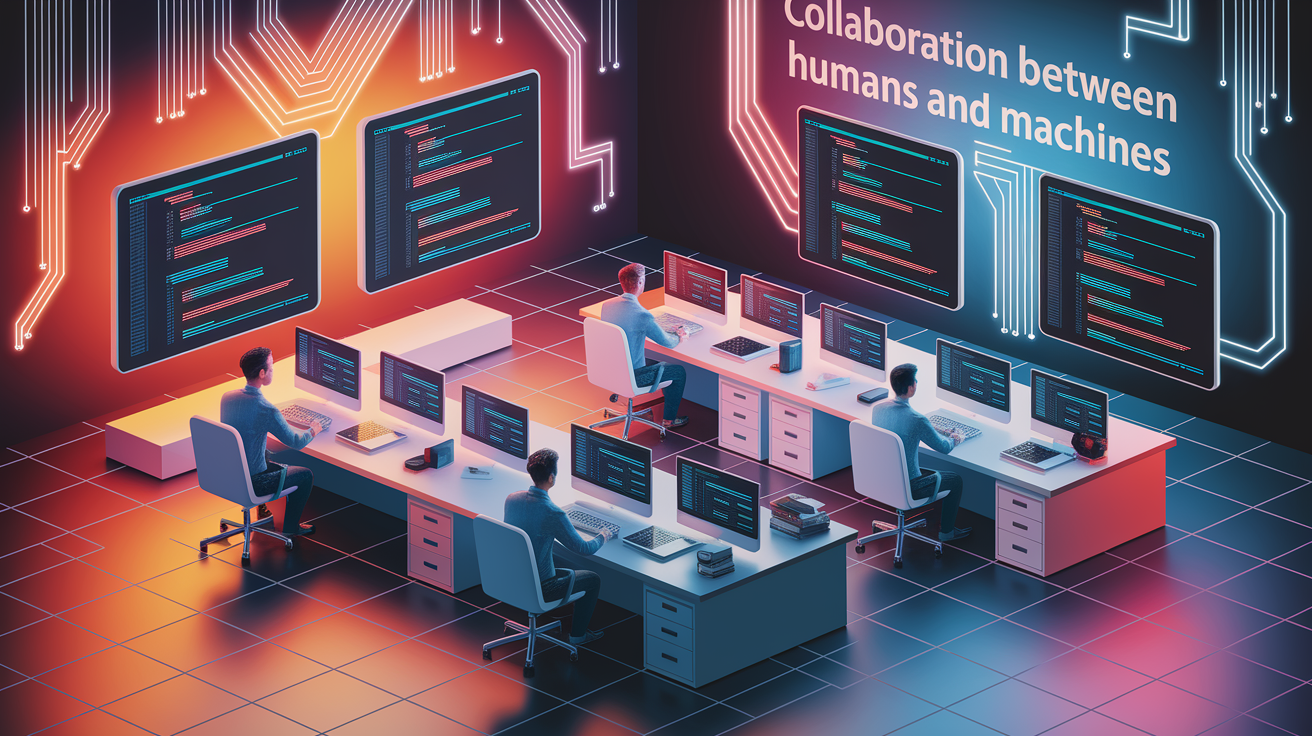Artificial intelligence (AI) is at the forefront of technological evolution, a beacon of innovation for both software and hardware companies. While software companies utilize AI to accelerate development and enhance security, hardware providers turn to AI to refine production processes and improve products. In this article, we will explore how AI acts as a driving force in both sectors and what opportunities arise for investors and private equity.
Revolutionary Innovations: AI as an Essential Tool for Software Companies

Artificial intelligence (AI) has established itself as a fundamental component of innovation strategies for modern software companies, transforming both the efficiency and creativity of the developer community. Automated code generation is a hallmark of this revolution, as AI-driven tools like GitHub Copilot provide developers with the capacity to quickly and efficiently create complex pieces of code. This not only drastically reduces development times but also shifts developers’ focus toward creative solutions and the design of innovative features.
Another factor highlighting the innovative power of AI is software application personalization. Utilizing machine learning, applications can respond uniquely to user behaviors and preferences, significantly enhancing the user experience. Especially in e-commerce and the healthcare sector, this technology demonstrates its potential by creating tailored experiences, thereby increasing customer satisfaction.
Furthermore, the seamless integration of AI into development processes enables optimized software distribution and monitoring. Automated tests and improved quality control systems set new standards, ensuring that products reach the market not only faster but also with superior quality. AI also plays a crucial role in the early detection and resolution of security issues, contributing to the development of self-documenting software.
The increase in productivity and the competitive advantage that AI provides should not be underestimated. It enables companies to flexibly develop new business models and respond quickly to market changes. In an increasingly competitive market, this can make the decisive difference between success and failure.
Additionally, AI transforms IT operations through Zero Touch Operations and Compliance, efficiently automating repetitive tasks and enabling accurate predictions of IT incidents. Related regulations are effortlessly adhered to by undertaking laborious analyses.
Overall, AI stands out as an indispensable factor for any ambitious software company aiming to continuously optimize its processes and maintain a leading edge in innovation. The use of AI in software development not only represents a significant opportunity but is also a necessary step towards future security.
Optimization Potential through AI: Revolutionizing Hardware

The role of artificial intelligence (AI) as a process optimizer for hardware providers has gained importance in recent years. In a sector that thrives on precision and efficiency, AI offers the opportunity to set new standards through automation, innovative advantages, and process optimization. Providers receive tools that enable them to make repetitive tasks more efficient and focus on more complex issues.
Automation is a critical factor in increasing efficiency in production. By using AI-driven systems, hardware providers can drastically reduce their production processes by replacing manual checks with machine learning. Particularly in quality control, it is evidenced how AI models can recognize patterns and anomalies, identifying defects early and allowing for preventive measures.
In addition to improving efficiency, the role of generative AI, which enables data-driven decisions for product development, cannot be overlooked. By analyzing large amounts of data, AI systems uncover unexpectedly high optimization potentials. Hardware providers benefit from the timely detection of trends and patterns that form the basis for innovative solutions and services.
Another decisive area is supply chain optimization. Predictive models with AI facilitate more accurate planning concerning inventory management and logistics, avoiding bottlenecks and supporting suppliers in aligning their actions quickly and flexibly to changes in market conditions.
In the field of design, AI opens new aesthetic and functional possibilities through generative design. It not only suggests more efficient design options but also entirely new ones that explore previously unknown dimensions in hardware design.
All these advancements require a stable and powerful infrastructure, as processing large amounts of data and integrating extensive AI models demand significant computational resources. Here, hardware providers benefit from dedicated server facilities, which ensure security and capability for AI-intensive workloads. These technological developments not only guarantee data protection but also strengthen the competitive position of providers.
Ultimately, AI proves to be an important tool for hardware providers to maximize their process capabilities. It offers ways to utilize production chains more efficiently, promote innovation, and adapt more quickly to market demands. Hardware providers that integrate AI as a central element in their strategic processes will not only remain competitive in the long term but will also position themselves as pioneers in the industry.